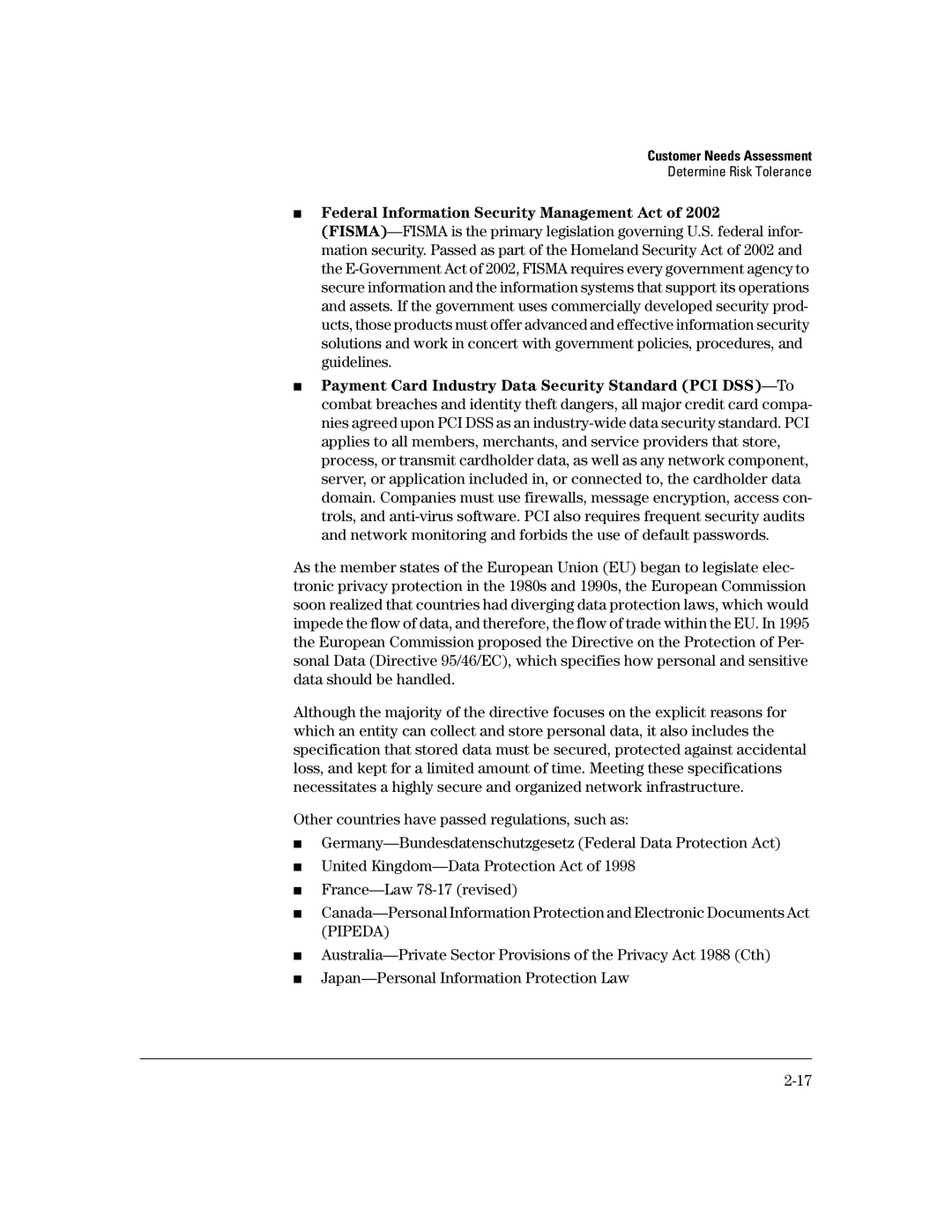Customer Needs Assessment
Determine Risk Tolerance
■Federal Information Security Management Act of 2002
■Payment Card Industry Data Security Standard (PCI
As the member states of the European Union (EU) began to legislate elec- tronic privacy protection in the 1980s and 1990s, the European Commission soon realized that countries had diverging data protection laws, which would impede the flow of data, and therefore, the flow of trade within the EU. In 1995 the European Commission proposed the Directive on the Protection of Per- sonal Data (Directive 95/46/EC), which specifies how personal and sensitive data should be handled.
Although the majority of the directive focuses on the explicit reasons for which an entity can collect and store personal data, it also includes the specification that stored data must be secured, protected against accidental loss, and kept for a limited amount of time. Meeting these specifications necessitates a highly secure and organized network infrastructure.
Other countries have passed regulations, such as:
■
■United
■
■
■
■
